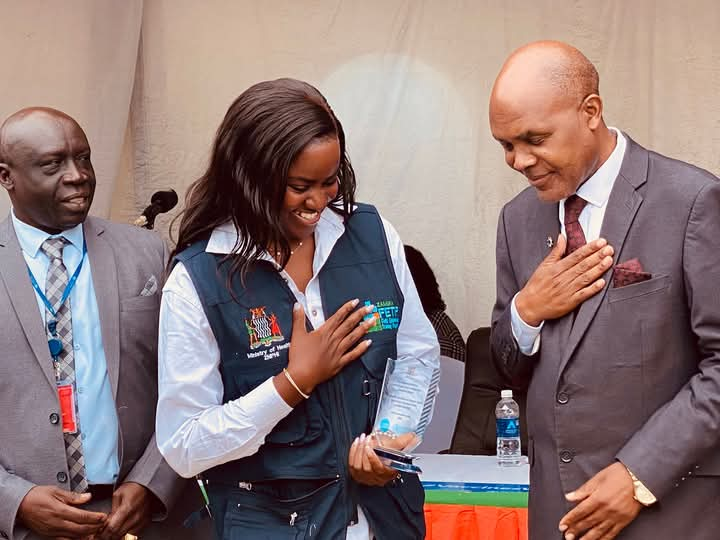Lusaka, Zambia – 14th May, 2025
The Ministry of Health has officially launched the 2025 African Vaccination Week, which runs from 14th to 20th May, while also commemorating the 50th anniversary of the Expanded Programme on Immunization (EPI) in Zambia under the theme, “Immunization for All Humanly Possible, Celebrating 50 Years of EPI.”
Speaking during the launch, Minister of Health Hon. Dr. Elijah Muchima, represented by the Permanent Secretary for Donor Coordination, Dr. George Sinyangwe, emphasized that immunization has been a cornerstone of Zambia’s public health successes, contributing to significant reductions in vaccine-preventable diseases and improved child survival.
Dr. Muchima highlighted key achievements, including the maintenance of a wild polio-free status since 2005, elimination of maternal and neonatal tetanus since 2007, and the vaccination of over 80% of the eligible population against COVID-19 by 2022. He also noted that Zambia’s immunization programme has expanded from initially targeting six diseases to currently covering thirteen under the national schedule.
He further announced that Zambia has recorded a 75% reduction in under-five mortality rates, dropping from 168 to 42 deaths per 1,000 live births between 2002 and 2024, an achievement attributed to investments in child survival interventions, nutrition, early childhood development, and expanded vaccination services.
UNICEF Country Representative, Dr. Penelope Campbell, reaffirmed UNICEF’s commitment to ensuring every child is protected through immunization. She noted that the African Vaccination Week aims to raise awareness on the importance of immunization, promote the introduction of new vaccines such as HPV, and reinforce national commitment towards equitable and sustainable vaccination coverage.
Dr. Campbell also commended Community-Based Volunteers (CBVs) for their tireless efforts in ensuring children, especially in hard-to-reach areas, receive life-saving vaccines.
WHO Country Representative, Dr. Clement Peter Lasuba, described the campaign as a historic milestone for Zambia, marking 50 years of EPI implementation. He reiterated WHO’s continued support in ensuring vaccine availability but noted persistent challenges such as poor infrastructure and misinformation, which require stronger community engagement to overcome vaccine hesitancy.
Representing the Churches Health Association of Zambia (CHAZ), Mr. Michael Kachumi applauded the tremendous progress made under EPI and reaffirmed CHAZ’s commitment to partnering with government and stakeholders to enhance immunization uptake and policy development. He called for increased resource allocation to further strengthen the programme and ensure vaccines are accessible across all health facilities.
During this week, the Ministry of Health is administering routine vaccines countrywide to children under five years, including OPV, DPT, PCV, Rota, Measles-Rubella, IPV, alongside HPV vaccines for girls aged 9 to 14 years to prevent cervical cancer, and COVID-19 vaccines.
The Ministry also recognized the most outstanding districts in EPI performance, awarding Lusaka Province as Most Improved in Vaccination, Central Province for Best Performance in Polio Surveillance, and Livingstone and Shibuyunji for Most Consistent Vaccine Supply Chain Management.
Zambia’s Expanded Programme on Immunization was launched in 1975, following the World Health Organization’s global initiative, with the Universal Child Immunization programme introduced in 1987.
Ministry of Health – Communications and Public Relations Unit







OTHER ARTICLES
Editorial — Prevent, inform, and act for women’s health in Africa
Kenya : Government Prioritises Maternal Health and Strengthens Support for Community Health Promoters
Strengthening pandemic prevention, preparedness, and response capacities in Senegal using the “One Health” approach